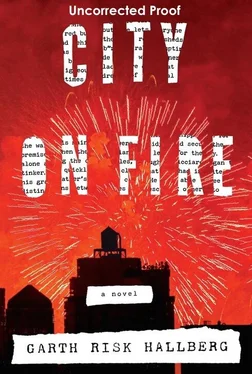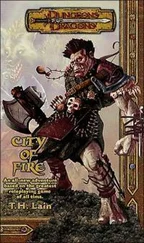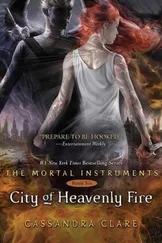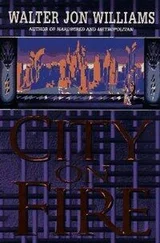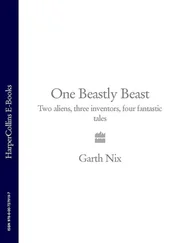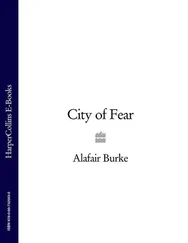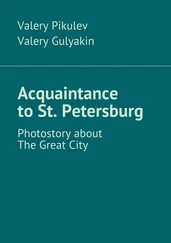“Billy.”
“Of all the terminals in the world …” Sol was already scanning for exits, which meant William had an edge here. Ditto the Rangers-logo jersey; Sol was aggressively punk, shaven-headed, multiply pierced and inked (was that a new tattoo on his neck?), and should have opposed on principle the fascism of team sports. But then William recalled his own clothes, the ridiculous coat that swept the floor when he walked. This would almost certainly be reported back to his ex-nemesis Nicky Chaos, whom Sol served as foot soldier, cupbearer, avatar. The trick was to stay on offense, to keep Sol from noticing. “Late with your shopping?”
“What? Oh.” Sol glanced at the duffel as if at some jungle predator that had dropped down on him from a tree. “No, uh … hockey practice. The nearest free ice is out in Queens.”
“On Christmas Day? I didn’t know you even played.”
“Well, I do.” No one was ever going to accuse Solomon Grungy of repartee.
“I guess you’ve always had the makings of an enforcer,” William said. “Just be sure you take those piercings out when you play.” No response. “But how’s tricks? How’s Nicky?”
Now Sol grew testy; why did everyone always assume he knew how Nicky was?
“It’s a pleasantry. I’m just asking, without the band, what you guys have been doing.”
“Some people have to work.”
“I don’t remember Nicky being among them. I heard he was trying to paint now.”
“That’s just like you, Billy, to act like painting still matters, with the world going to shit all around you.” And here, falling back on Nicky’s old hobbyhorse about art versus culture, Sol seemed to relax; you could actually see a calculation lope across his face, where on most people’s it would have flitted. “But I guess Nicky’s been meaning to get in touch. What we’ve been doing is, we’re getting the band back together.”
“Like hell you are.”
From its inception, Ex Post Facto had been William’s baby. Well, his and Venus de Nylon’s. They’d dreamed it up that hazy summer of ’73. William had scribbled out a manifesto and a few songs, they’d enlisted a couple friends as the rhythm section, Venus had found some old bowling uniforms at a flea market and resewn them to look paramilitary, and they’d worn them down to the nightclub where a Hells Angel who lived in William’s building sometimes worked the door. They’d played those early shows as a four-piece. Only after they’d cut a record had Nicky Chaos come along. The sound needed a second guitar, he insisted, though his musicianship made Nastanovich, on bass, look like Charlie fucking Mingus. No, Nicky wanted to play guitar because William played guitar, paint because he painted. Sometimes it seemed as though what Nicky Chaos really wanted was to out-William William, even as William tried his damnedest to become something else. Sol shifted the bag on his shoulder and winced. “It’s true. Nicky booked a New Year’s show, a comeback.”
“Why’d he do that? You’ve got exactly zero original members of the band.”
“We found a real PA for me to run this time.”
Probably stolen, knowing Sol. Like the hockey uniform, which was suspiciously pristine, given the mud all over his boots, the black stuff under his nails.
“Plus we’ve got Big Mike.”
Ah. So they’d stolen his drummer, too. And if they had Big Mike, who else was left to stand in their way? Venus had washed her hands, and Nastanovich was no longer in any position to object. All of a sudden, William couldn’t remember what he was still trying to hold on to. Still, Nicky’s habitual indifference to the fact of other people brought out his inner autocrat. “Well, so long as you guys don’t use the handle.”
“What?”
“Tell him he can have Big Mike, but the name, Ex Post Facto — that belongs to me.”
“But we need the name, man. How do you think we landed a show at the Vault?”
“I’m sure you’ll come up with something. Nicky always had a way with words.”
For a moment, a helplessness entered in, an appeal to a camaraderie that had never really existed. “You should come see us, you know. You might be surprised.”
“I may just do that. But wait a minute … aren’t you missing something?”
“Huh?”
“Your stick.” He reached out to touch the place on Sol’s big shoulder where a hockey stick would have rested. His rustling coat must have been charged up with static electricity, because a spark leapt between them, mute amid the terminal noise. And it was strange how time seemed to wind down. How, at the apex of Sol’s literal jump, fear gaped from behind his shocked-white face. Then he forced it back into a facsimile of the old Grungy sneer.
“I broke it over some guy’s head when he crossed me.”
“I bet you did,” William said. “Anyway, I’ll be seeing you.” And after agreeing that he would — maybe New Year’s? — Sol hurried off toward the downtown 6.
Fucking holidays, William thought. Occasions to rethink your life, ostensibly, but how were you supposed to do that when other people kept dragging you back toward whoever you used to be? Even now, for example, he knew he wasn’t going to be able to ignore his curiosity about what Nicky Chaos was up to — just as he knew that in a few minutes, he’d be back in the basement-level bathrooms, seeking out the various forms of sweet release that waited there. Truth to tell, it was probably why he’d really come here in the first place. But so then, putting aside this hockey nonsense, what was Sol Grungy’s excuse?
MERCER UNTWINED THE MEAGER SHEAFof manuscript pages, set them face-down on the coffeetable, and rolled a sheet of A4 onto the drum of the new IBM Selectric, whose hum seemed accusatory. For half a year now, he’d let William believe this was a more or less daily ritual. If, when he got home from teaching, William was up in the Bronx attending to his own magnum opus — a diptych called Evidence I and II —that was okay; Mercer could use the time to toil in the vineyards of the novel. And if later, over dinner, Mercer refused to discuss the day’s progress, it was because it was his policy not to disclose details, rather than because they didn’t exist. He really would every so often sit down to the ramshackle Olivetti, as he used to back in Altana. Mostly, though, he lolled on the futon under a spavined volume of Proust. Blocked, he’d thought. But had writer’s block stopped old Marcel? Probably it was just a synonym for failure to buckle down, and as soon as he touched these virgin keys, fire would sweep across his cerebellum, flaming letters fly down through his fingers to scorch the page. By the time William returned, a Christmas miracle would be complete — duplicity exorcised for all time, months of inertia transubstantiated into art.
But things didn’t happen like they did in novels, and nothing continued to come. The last daylight inched like a cortège across the secondhand furniture, the Gentlemen Prefer Blondes poster, the tabby odalisqued on the rabbit-eared Magnavox, the cut-to-fit kitchenette congoleum, the tiny mirror placed above the sink because the bathroom was out in the hall, shared by the whole floor (another quirk from the factory days). The cremains of Christmas dinner, doubled there, were like an exhibit in the museum of his personal failings.
It was a measure of the derivative nature of Mercer’s distraction — distraction from distraction — that he didn’t hear anyone come upstairs until the doorknob began to rattle. Night having fallen, the person trying to get in was just a silhouette against the pebble-glass, and there was something odd in the way it carried itself. Some wild-eyed addict curled around a blade? A white-ethnic vigilante determined single-handedly to de-integrate the neighborhood? It was William. And when he opened the door and flicked on the overhead light, his lip was split open, his right eye swollen shut. Under the chesterfield draped over his shoulders, some kind of makeshift sling pinned his right arm to his torso. In the dizzy microsecond before he jumped up, Mercer was suspended between present and past, eros and philia.
Читать дальше
